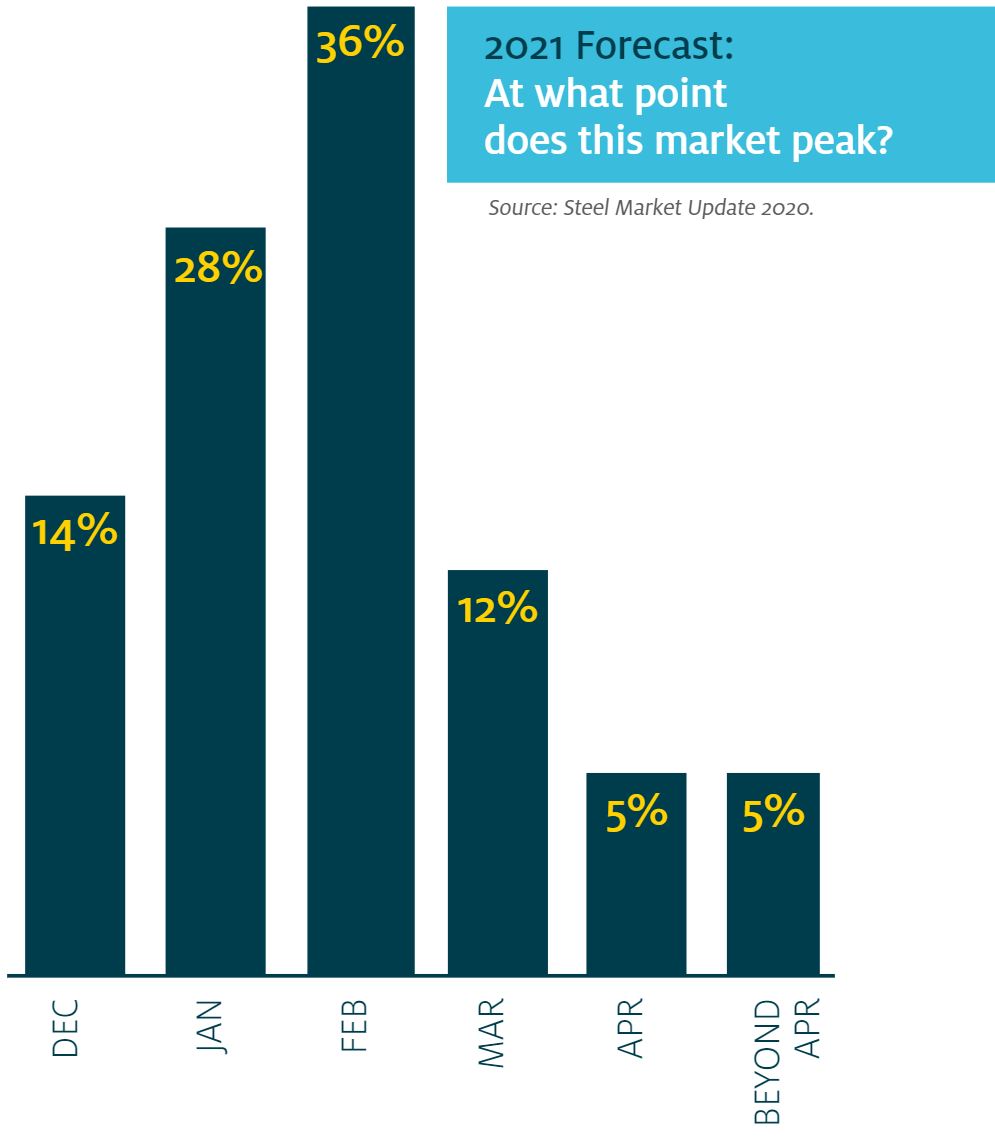Published Monday 15th February 2021
Key Facts at a Glance
- The benchmark price for hot rolled steel reached a new record high of $1,080 per ton recently, surpassing the previous high of $1,070 per ton recorded in 2008.
- Prices for flat rolled and plate steel products jumped by another $40-80 per ton in recent weeks as steel demand continued to outstrip supplies and spot market tons remained scarce.
- Steel prices are difficult to assess given the tight market conditions with relatively few non-contract transactions taking place.
- Consider that it won’t be until sometime later this year that mills bring new steel-making capacity online.
- Imports remain limited by strong markets overseas
- Without an increase in production/imports or a decrease in consumption to bring supply and demand more in balance, prices could rise even further in the coming weeks and months.
How long will steel prices continue to rise?
Forecasts are mixed as there is little consensus on the question.
But the majority of buyers see prices continuing to rise well into first-quarter 2021, see figure to the right. The key issue here is that if wholesalers have secured stocks at higher prices, fabricators and manufactures may have price increases baked in for several months to come. So expect price pressure in engineering consumable items over the coming weeks and months.

In summary, the upward slope of the steel prices is as much about the tight supplies as it is about the growing demand as the economy rebounds from the pandemic shutdowns. Mills idled significant capacity in the second quarter and have taken their time about bringing production back. Lead times for delivery of spot tons from the mills have nearly doubled since early in the year as the mills scramble to keep up with orders. As of November, most mills were filling their order books for January already as buyers hurried to secure their share of the limited tons available.

About the Author: Bob Johnson, has had a successful career with over 30 years experience in the food manufacturing industry, working for blue chip companies that manufacture some of Britain’s most iconic brands.